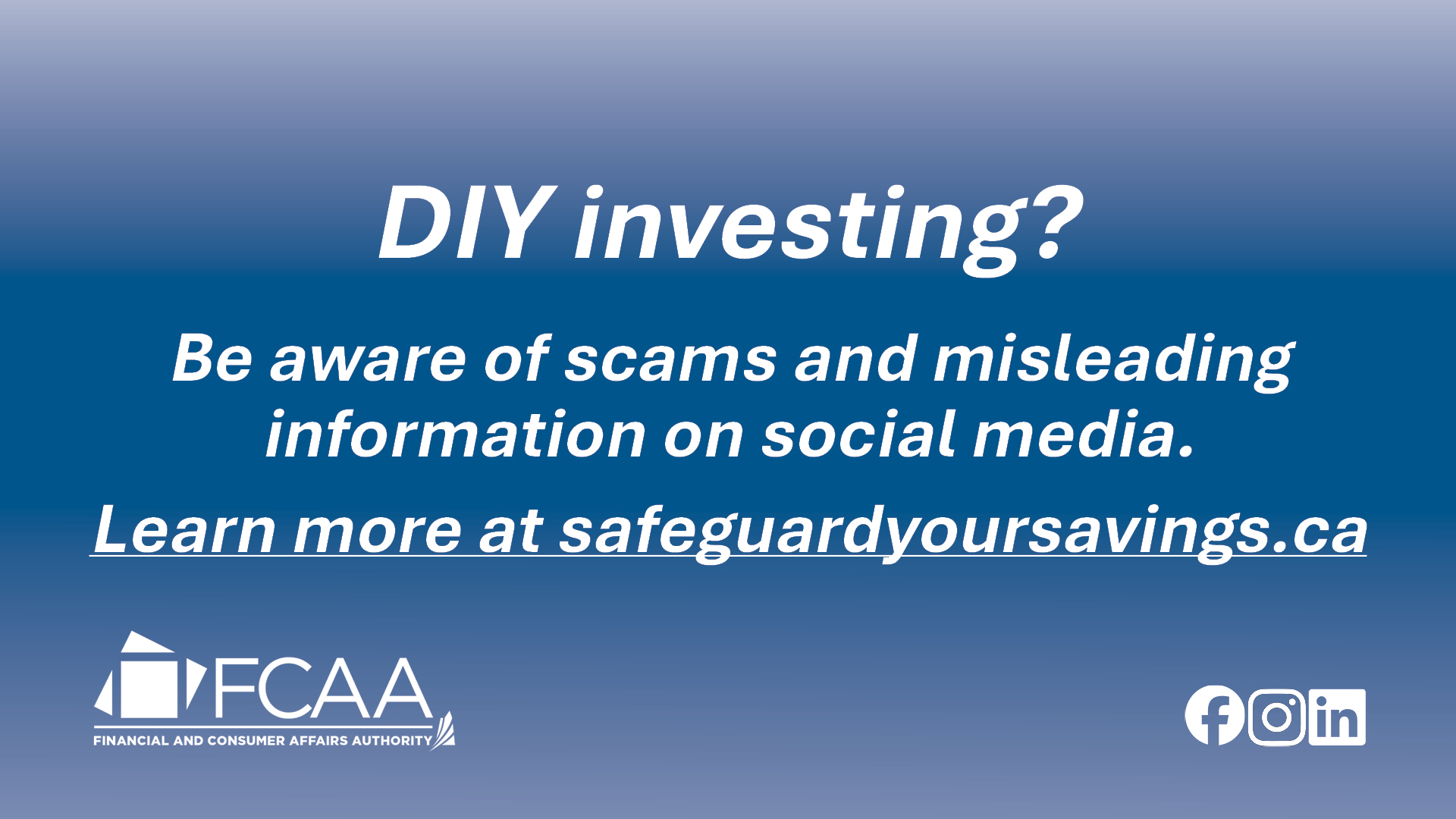Do It Yourself (DIY) Investing
Securities Division
4th Floor, 2365 Albert Street
Regina, SK, S4P 4K1
Tel: (306)787-5645
Fax: (306)787-5899
Email: fcaa@gov.sk.ca

For more information on DIY investing, select one of the options below.
- What is DIY investing?
- What DIY investors be aware of
- Tips for DIY investors
- Be aware of investment fraud
- More information on DIY investing
What is DIY investing?
- Do it yourself investing, also known as DIY investing is when an investor makes their own investment decisions without receiving advice from a full-service registered advisor.
-
A DIY investor will often use discount brokerages and online trading platforms to make their investments. This can offer lower fees than a traditional investment approach, but investors are also completely responsible for all their investment decisions, successes, and losses.
What DIY investors should be aware of
- DIY investors should always check registration before investing and never invest through a person or company who is not registered. To check registration, visit The Canadian Securities Administrators’ National Registration Search at aretheyregistered.ca.
- While the internet and social media provide unlimited sources of information, most of it is not tested or reviewed and much of it is untrue.
- DIY investors should be aware of scams and misleading investment information on social media.
- DIY investors should do additional research to verify the investment information they see on social media.
- DIY investing takes a lot of dedicated time. If you do not have this time, this type of investing may not be for you.
Tips for DIY investors
- Check before investing - Always verify that the person or company offering the investment is registered in Saskatchewan. To check registration, visit The Canadian Securities Administrators' National Registration Search at aretheyregistered.ca.
- Do your own research – Verify everything you see on social media.
- Understand the basics of trading - Know exactly what you are investing in and make sure you understand how the investment, product, or service works.
- Develop an investment plan – It is important if you do DIY investing that you start by making an investment plan for yourself where you set out your goals, your level of risk tolerance and what investments would meet these needs. This plan should be reviewed regularly to check if any of these things have changed.
- Understand your risk tolerance – How much risk can you accept and still meet your goals.
- Recognize red flags of fraud
- Pay attention to financial news that could affect your investments.
- Monitor and manage your investments regularly.
- Learn about fees - You won’t be paying fees to a full-service advisor but there are still fees associated with discount brokerages and online trading platforms.
Be aware of investment fraud
Fraudsters create fake websites and use advertisements, recommendations, and private messages to convince investors that they should part with their money to achieve big returns. Visit our investment fraud web page for more information about how to spot and report investment scams.
If you have discovered a fraudulent investment opportunity, you can report the scam to the FCAA Securities Division at enforcementfcaasd@gov.sk.ca or 306-787-5936.
More information on DIY investing
News Releases and Studies
- The FCAA Wants "Do It Yourself" Investors to Make Informed Investment Decisions - Nov. 3, 2025
- CSA encourages open dialogue amid trend toward hybrid and self-directed investing - Nov. 5, 2025
- CSA Hybrid DIY Investing Study
FCAA News Interviews
- Evan Bray Radio Show - Nov. 2025
- CBC Radio Morning Show - Nov. 2025
- Global News - Nov. 2025
- Access Communications Talk of the Town - Nov. 2025
Securities Division
4th Floor, 2365 Albert Street
Regina, SK, S4P 4K1
Tel: (306)787-5645
Fax: (306)787-5899
Email: fcaa@gov.sk.ca

